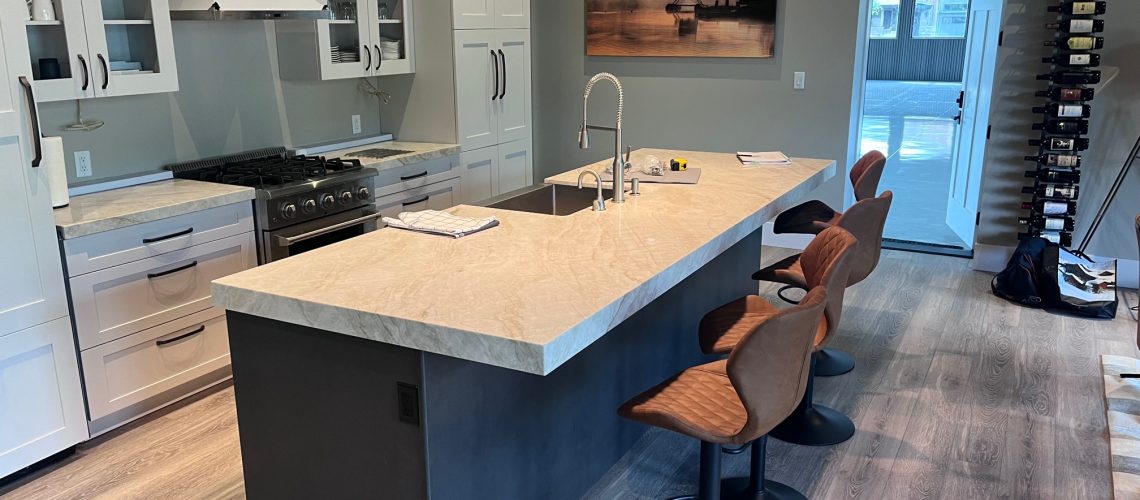The countertop is arguably one of the primary features of any kitchen. If you’re thinking about remodeling this space, starting with this fixture can be a great way to transform the room while enhancing its functionality. One of the main elements individuals consider when considering a countertop installation project is the best material for their needs. Butcher blocks have long been favored as exemplary alternatives for homes looking to combine practicality with a beautiful outlook.
What are Butcher Block Countertops?
In simple terms, a butcher block is a wooden countertop that can come in multiple styles and designs. One of the most important elements to keep in mind when opting for the alternative is the kind of wood involved will directly impact the quality. Some of the more popular species used for butcher blocks include Maple, Oak, and Walnut. Hardwoods are generally preferred for these fixtures because of their longevity and durability. They’re made by bonding strips of lumber together to form a solid slab.
Pros of Butcher Block Counters
Some of the benefits of butcher block countertops include:
- Butcher blocks represent one of the more affordable countertop solutions available in the market when looking at quality options. Depending on the wood involved, butcher blocks can cost between $50 and $70 per square foot on average. Jackson WY Granite Countertops, on the other hand, cost between $75 and $200 per square foot. Admittedly, there are cheaper options available in the market – but these alternatives don’t offer the same level of quality as butcher blocks.
- These countertops bring about a traditionally homely ambiance reminiscent of welcoming farmhouse kitchens in the South. They’re available in a wide variety of hues and textures and can be painted to conform to any style as well. Contractors recommend maintaining a natural surface with your butcher block to avoid food contamination when working with an active cooking space.
- Opting for a butcher block design can also offer homeowners the opportunity to adopt an environmentally friendly approach. Reclaimed wood can be implemented with the production of the counter, reducing the carbon footprint in the process.
- The general maintenance requirements related to butcher blocks are simple and straightforward. The main objective is to keep the surface clean at all times, which can be achieved by wiping down the surface with warm water and mild soap. You’ll also need to regularly apply mineral oil to the surface to protect the surface.
- Butcher blocks are available in a wide variety of hues and textures, offering an extensive selection for homeowners to choose from.
Cons of Butcher Blocks
Some of the few setbacks suffered by butcher block counters include:
- Wood is generally more sensitive to physical impact when compared to alternatives such as Jackson WY Granite Countertops. Wayward slashes of a knife or a mallet, for instance, can lead to chips and dings along the surface. They can also scratch easily.
- Depending on the lumber involved, butcher blocks can be adversely affected by fluctuating temperatures causing them to crack or warp. Individuals can attempt to avoid this reaction by leaving enough space along the perimeter of the counter along the wall for expansion.
- Butcher blocks are also more porous than alternatives such as stainless steel, porcelain, or stone and as such are more sensitive to liquids. It’s important to wipe up any spills as soon as possible as wood doesn’t do well around constant moisture and condensation. Applying a sealant regularly is an effective means of reducing the potential damage that can be done by liquids.
For high-quality butcher block countertops at affordable rates, call us today! Custom Royal Countertops and Tile, your preferred contractor!

